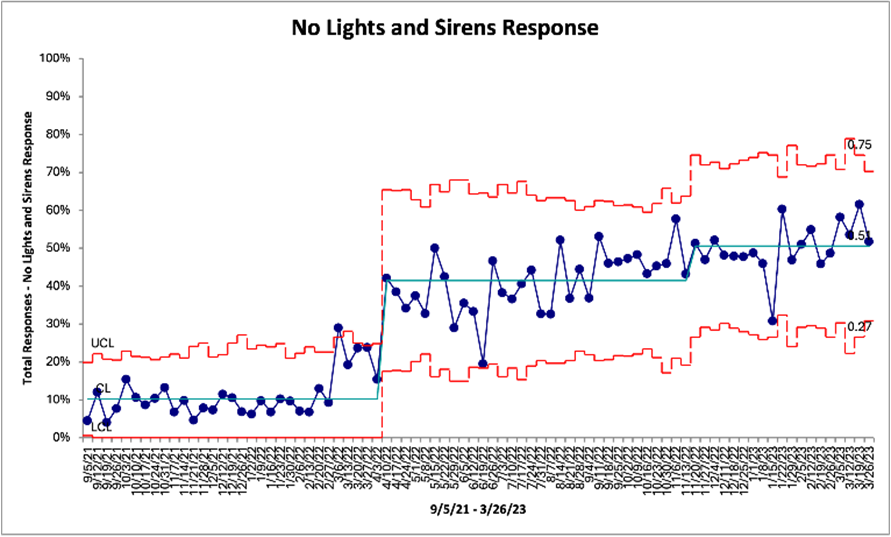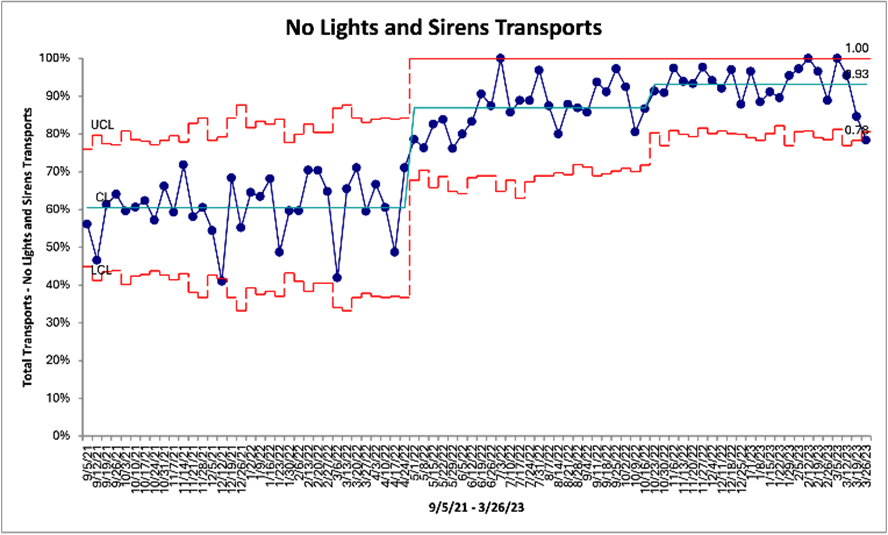EMS Quality Improvement Partnership: Lights and Siren Collaborative Case StudyMcGregor Memorial EMSMcGregor Memorial EMS, a regional non-profit organization, serves as the primary emergency ambulance service for Durham, Lee, Madbury, and the University of New Hampshire. McGregor offers Advanced Life Support ambulances and a Paramedic Intercept Vehicle staffed with a team of over 70 active volunteer EMTs, including a team of 14 paramedics with extensive experience and about 20 advanced/intermediate practitioners. Many of the volunteers also work in healthcare roles at nearby hospitals, busier ambulance services, and outpatient clinics. Lights & Siren Considerations and EvaluationRecognizing the potential risks and limited clinical benefits of lights and siren, McGregor EMS opted to join the National Collaborative to reduce the use of lights and sirens, for calls where time-saving measures hold no clinical significance.McGregor made the case for the change by presenting data from previous studies to their medical director. They then made an evaluation of their system’s Potentially Life Saving Interventions (PLSI) and were able to identify a host of call types that could be safely downgraded. Volunteer Expectations: They challenged the myth that the volunteers would not continue to volunteer if they were not using emergency lights and siren responses and transport. They did not lose paid staff or volunteer staff to the change. Risk to Public Health: Through open discussions with volunteers and paid staff about the risk/benefit of lights and siren, they were able to address concerns about the use of lights and siren in the response and during transport. Making the ChangeMcGregor EMS revised response and transport policies based on feedback and data analysis. They instituted the department's first-ever "hot transport" policy, which was developed in conjunction with stakeholders from the ED, trauma service, stroke and sepsis programs, and cardiac services at local hospitals. This policy was reviewed frequently and refined based on patient outcome data. Discussions centered on the frequency of PLSI, emphasized the acceptability of slower responses for certain calls, highlighting outcomes over speed, and improving dispatch protocols. Although there was concern from the volunteers and staff, the change became more palatable to the staff through discussions of the risk to the providers and the public and the lack of benefit to the patient. Having outside validation from the hospital and sharing outcome data provided by the hospital was extremely influential within the organization. McGregor was one of the only agencies in the Collaborative to significantly reduce its use of lights and siren during Transport. Insights from McGregor Memorial EMS on Reduced Lights & Siren Use
|




